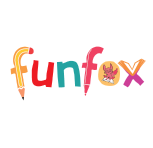The first day of school is special for every child and parent alike. This is the first step taken by your child towards a new world of learning and exploring limitless opportunities.
However, the first day also witnesses many crying faces owing to the uncertainties that lie ahead. Since it is a significant day for the child, it is the responsibility of parents and educators to make the child comfortable to face this new challenge.
Preschool education marks a pivotal phase in a child's life, setting the stage for their transition from the home environment to a structured school setting.
It is meticulously designed to foster a child's natural inquisitiveness, guiding their early developmental milestones through a blend of play and structured learning. Let’s delve further into the multifaceted aspects of preschool education, and comprehend its significance in laying a solid foundation for children's lifelong learning and growth.
Before we move further, let’s understand the preschool-age development better.
Understanding Pre school Age Development
During the ages of 4 to 5, children embark on an intricate journey of emotional and behavioral discovery. This period is critical for several developmental aspects mentioned below.
The Role of Play
Play is an indispensable educational tool that enhances problem-solving, creativity, and self-expression in children. Through structured play like puzzles, and imaginative scenarios like role-playing, children learn to navigate their environment, solve problems creatively, and understand social interactions.
Cognitive Development
Preschool years are crucial for boosting memory, attention, and critical thinking. Activities like singing, interactive storybooks, and simple games enhance children's ability to process information, remember sequences, and solve problems, setting a solid foundation for future academic success.
Language Skills
Rapid language development occurs during the preschool stage, where children expand their vocabulary and grasp grammar and syntax through daily conversations, reading, and storytelling. This immersion in language helps children improve both their understanding and expression of self.
Physical Development
Physical growth in preschoolers involves enhancing gross motor skills through activities like running and jumping, and fine motor skills through drawing and crafts. These activities improve children's coordination, balance, and manual dexterity, crucial for everyday tasks.
Routine Independence
Establishing daily routines helps preschoolers gain independence and confidence in personal tasks such as dressing, eating, and toileting. Consistent routines teach time management and the importance of order, providing a sense of security and fostering self-reliance.
Now that we are clear about children’s development that occurs during the preschool age, let’s move further to some strategies for you to help the kids transition smoothly from one area to another.
Supporting Transition and Development
Transitioning into preschool represents a significant adjustment for young children. Here are some effective strategies to facilitate this change.
-
Emotional and Behavioural Regulation
Implementing consistent routines is crucial for helping preschool children regulate their emotions and behaviors. Routines create predictability, which can reduce anxiety and behavioral issues.
Emotional coaching goes further by actively teaching children to understand and manage their feelings. This involves helping them identify their emotions, understand why they feel a certain way, and learn appropriate ways to express these feelings. Techniques such as storytelling to illustrate emotional coping or role-playing scenarios can be particularly effective.
-
Supportive Learning Environments
A supportive learning environment that promotes play and creativity is vital for children’s educational growth. Such environments are rich with opportunities for children to explore, experiment, and express themselves.
This can be achieved through classrooms and play areas that are well-stocked with materials for creative play, such as art supplies, building blocks, and role-play costumes. Educators and caregivers can enhance learning by being responsive to children’s interests, offering choices, and encouraging exploration.
-
Cognitive and Problem-Solving Activities
Cognitive development in preschoolers can be stimulated through games and activities that require thinking and problem-solving. This includes puzzles, building sets, memory games, and interactive electronic games that challenge cognitive skills in a playful context.
Such activities help develop children’s ability to think critically, solve problems creatively, and make decisions. They also provide a practical framework for understanding cause and effect, sequencing, and logical thinking.
-
Language Development Activities
Regular reading and conversation are fundamental activities that boost language development in young children. Daily reading sessions expose children to new vocabulary and concepts, and help them understand the structure and rhythm of language.
Conversations that involve open-ended questions encourage children to express their thoughts and improve their conversational skills. Language games, rhyming activities, and storytelling are also effective ways to enhance linguistic abilities.
If you’re an educator, you can try out these fun reading games in the class to indulge the kids more.
-
Physical Activities
Physical activities that require coordination and balance are essential for developing both gross and fine motor skills. Gross motor skills benefit from outdoor play, sports, and activities like jumping, climbing, and dancing, which enhance body awareness and strength.
Fine motor skills can be developed through arts and crafts, such as coloring, cutting with scissors, and manipulating small objects like beads or puzzle pieces. These activities are crucial not just for physical development, but also for the growth of neural connections related to various cognitive functions.
-
Fostering Independence
Fostering independence in children involves structured routines and positive reinforcement from both parents and educators. Encouraging children to participate in setting their routines, such as picking out clothes or helping to prepare simple meals, builds their decision-making skills and self-confidence.
Positive reinforcement, such as praise or small rewards for completing tasks independently, can motivate children and reinforce their desire to take on new challenges. This approach teaches children the value of responsibility and self-reliance. You can learn more about positive parenting here.
We hope these strategies will help make your child’s transition easier and smooth. However, everything has its own challenges. Let’s look at some challenges and how you can solve them.
Challenges and Solutions
Each child's developmental path is unique, and some may face specific challenges.
-
Developmental Concerns: Parents should familiarize themselves with key developmental milestones such as speech, motor skills, and social interactions. Recognizing deviations early on allows for timely consultation with pediatricians or child development specialists, ensuring any necessary interventions are as effective as possible.
-
Managing Transitions: The shift to preschool or kindergarten is significant. Parents can help by discussing what to expect, visiting the school beforehand, and maintaining a consistent routine. Such preparations can reduce stress and help children view these changes positively.
-
Separation Anxiety: To help children cope with separation anxiety, start with short periods of separation and gradually increase the time spent apart. Consistent routines and reassuring transitions can also provide comfort and build confidence in new settings.
-
Digital Media Impact: While digital media can be educational, excessive screen time may hinder physical and cognitive development. Parents should aim for a balanced approach by setting limits on screen time and encouraging a mix of other activities like reading, outdoor play, and creative arts, which are crucial for overall development.
In all of these, parents’ involvement is crucial as they are the first point of contact for children with the outer world and now they are stepping into a new world. Let’s understand the significance of the same.
Parental Involvement and Support
The involvement of parents in early education is critical for fostering an environment conducive to growth and learning.
Parent-child play is a cornerstone of early development, providing joy and aiding in reaching developmental milestones. It’s essential that parents actively engage in play, as this not only strengthens the bond with their child but also supports their cognitive and social skills.
However, one thing that you need to remember is that parental care is also a significant part of taking care of the children. Parents who take the time to maintain their own mental and physical well-being are better equipped to provide the stable and supportive environment necessary for their children's development.
Lastly, making use of community and educational resources can offer significant benefits. By tapping into local programs, libraries, and schools, parents can enhance their child's educational experience and gain valuable support for themselves, creating a nurturing and enriched learning environment for their children.
Engaging with programs like Funfox not only provides educational benefits for children but also offers parents the tools and support necessary for fostering a nurturing learning environment for holistic growth.
Final Thoughts
A deeper understanding of the complex developmental stages of pre school aged children enables us to better support them during this formative period.
By creating an enriching environment filled with opportunities for play, learning, and growth, we can help children achieve their full potential while easing their transition into formal schooling. Let's continue to empower our young learners with the care, understanding, and resources they need at this critical developmental stage.










